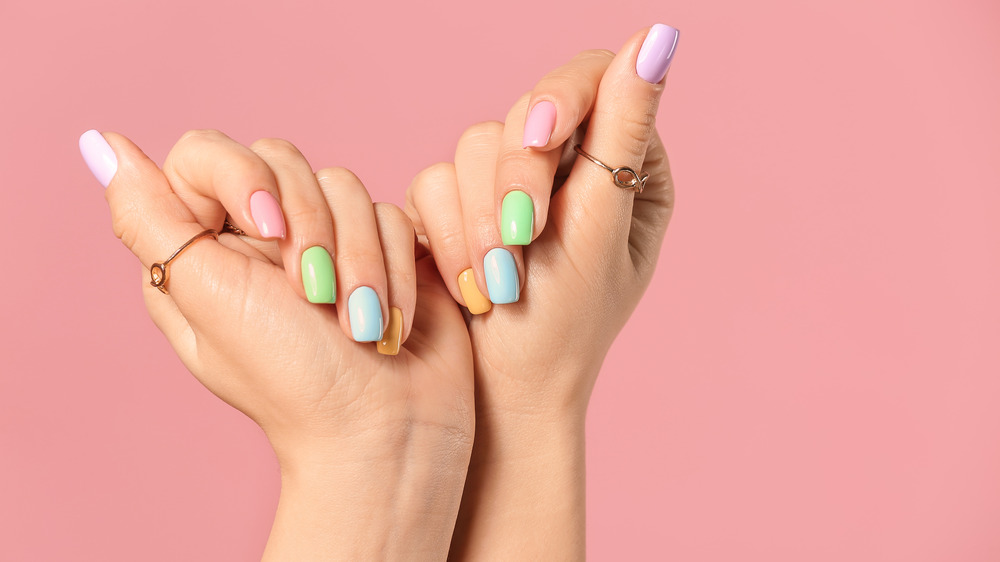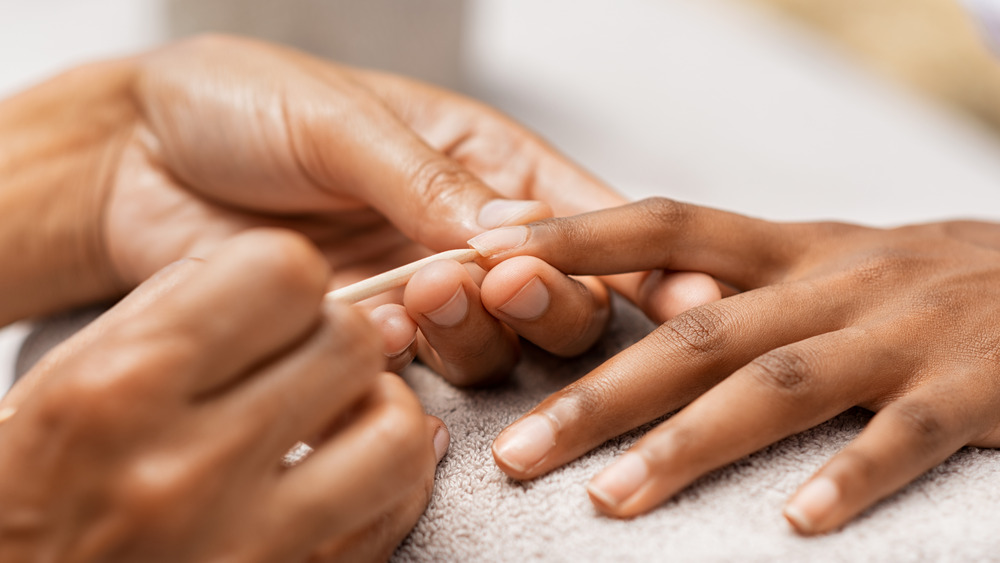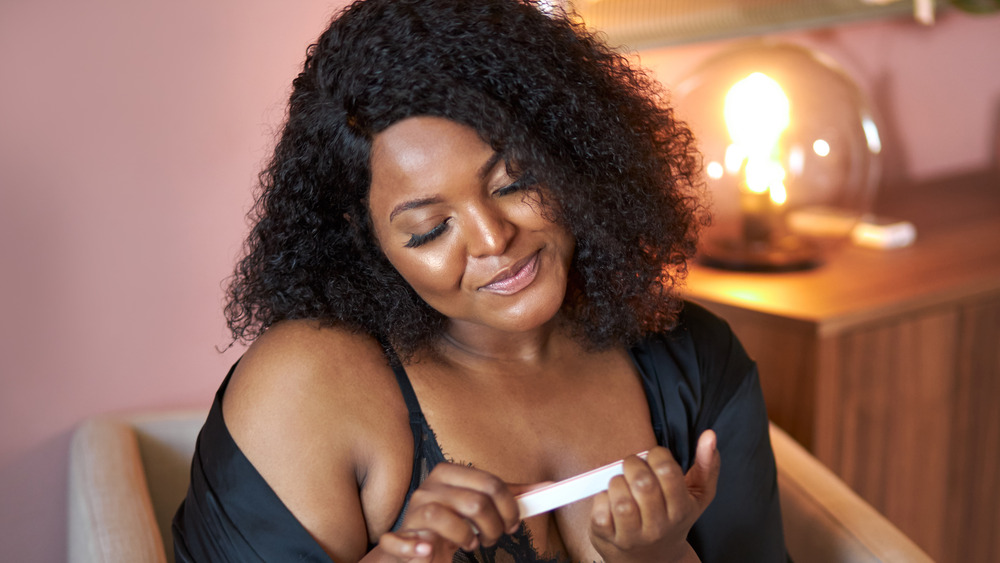Here's How You Can Fix And Prevent Brittle Nails
As nail salons closed periodically over the last year, it would seem that many people have taken this chance to grow out their natural nails, strengthen them, and attempt some at-home nail art. Taking care of your nails isn't always straightforward, especially if you want to improve their overall health. So, breaking one after putting time and effort into them can be really disappointing. Here's how you can fix and prevent brittle nails.
It's not uncommon to have brittle nails that are prone to break. Harvard Medical School outlines that the condition where nails split, peel, or break is called onychoschizia. 27 percent of people have brittle nails. According to Medical News Today, the main causes of brittle nails are too much or too little moisture. Similarly, brittle nails may be a sign of an iron deficiency, low thyroid levels, and your nails tend to become more brittle with age.
"If you're having trouble with weak nails, consider cutting down the length while you build up their strength," board certified dermatologist, Sheel Desai Solomon, MD, told Prevention, "Shorter nails are less prone to breaking because there are fewer exposed edges to tear, and less surface area where water and chemicals can be absorbed."
What should you do if you have brittle nails?
If you are experiencing brittle nails, Healthline suggests that you take a biotin supplement. Biotin is made up of vitamin H and vitamin B7 and can help strengthen your hair and nails. You should also try to keep your hands dry and drink plenty of water. This ensures that your nails don't get soft from exposure, but get all the hydration they need from your body.
"To have strong nails, they need to be healthy — and to be healthy, they need to be hydrated," Ama Quashie, session manicurist and founder of Ama salon told Elle, "Cuticle oil works by hydrating the cuticle and nail bed, which is why it's such an important step in nail care, whether you're growing your nails or simply want them to look their best."
Quashie outlines that you don't necessarily need to invest in an expensive branded oil. Jojoba does a really good job (via Elle). Dr. Solomon also told Prevention that when you're doing your nails at home, you should look at the ingredients in your products. Acetone is often included in nail polish remover. "This can cause peeling, splitting, and those unsightly white, mottled marks," she said.
How to prevent brittle nails
Whether you've always had strong nails or have finally got them to a point where they're growing and thriving, it's likely you'll want to do the most to keep them that way. Alongside ensuring you're hydrated, Healthline recommends that you cut your nails regularly, get rid of any cuticles, and file and buff your nails in one direction. Use hardening products and wear gloves when you're doing chores around the house.
Healthline also states that you should give your nails a break from polish, gels, or acrylic nails. Speaking to Today, Dr. Sonia Batra, a board-certified dermatologist, said that treating your nails every eight weeks should be fine. While celebrity manicurist, Erica Marton, told the outlet, "Nails need oxygen to maintain health and to get their nutrients. Think of it as wearing a latex mask on your face: After a day, your face would need to breathe. You can get irritation. The same applies to nails, just not the same effects of a face irritation."
If you change up your routine and you find that you still have brittle nails then Prevention suggests that this could be a sign of an underlying condition. Don't be afraid to reach out to your doctor.


